South Korea began mandating novel coronavirus testing for all arrivals from Europe -- citizens and foreigners alike -- on Sunday amid concerns about the growing number of imported cases of COVID-19, now that the continent has become the new epicenter of the global pandemic.
Upon entering the country, those with COVID-19 symptoms such as fever, coughing or sore throat will get tested in separate quarantine facilities. Asymptomatic travelers will be taken to temporary accommodations near Seoul to be tested and quarantined until the results come out.
All passengers entering the country for a long-term stay must self-quarantine for two weeks even if they test negative. The quarantine can be done at home, or at government-designated facilities for those with no place of residence in Korea. Foreigners coming for a short-term stay will not be quarantined, but health officials will check on them daily by phone for updates on their health.
Recently the country has seen a rising number of imported cases of COVID-19, which have added to the burden of fighting the disease after Korea had made some progress and achieved a marked downward trend in the spread of the virus.
On Sunday, Korea had reported 98 new cases of COVID-19, down from the previous day’s 147, bringing the nation’s total to 8,897, according to the Korea Centers for Disease Control and Prevention.
Of the new cases, 15 people were infected abroad, with eight having brought the disease in from Europe, five from the Americas and one each from the Philippines and Iran, putting the total of imported cases at 122.
Since last week, Korea had extended special quarantine measures to cover all arrivals from abroad, including temperature checks and filling out quarantine documents at airports, but many warned that was not enough to contain the influx of the virus from overseas.
Seoul has yet to mandate COVID-19 tests on arrivals from countries other than Europe. “We will decide as we monitor the situation and virus outbreak with regard to applying such policies to arrivals from the US and other countries,” said Health Minister Park Neung-hoo.
Two people died, raising the nationwide death toll to 104. Another 297 people were newly declared virus-free, putting the total number of recoveries at 2,909.
Of the 98 newly confirmed cases, 43 occurred in Daegu and 11 in neighboring North Gyeongsang Province, the hardest-hit region here. Daegu accounts for 72 percent of the nation’s COVID-19 infections to date, North Gyeongsang Province for 14 percent.
The new cases in the region were traced to nursing homes, which have emerged as new clusters. The government is carrying out exhaustive testing at nursing homes and social welfare facilities amid concerns about mass infections among seniors and people with preexisting illnesses, who are at a greater risk of death or serious complications.
Daegu officials said they have almost completed testing for COVID-19 at all 394 nursing facilities in Korea’s fourth-largest city. Among 33,610 patients and staff, 94.6 percent, or 31,754, have undergone testing, with the remaining 1,856 to be tested within Sunday. As a result, 227 people have been confirmed with COVID-19.
Starting Monday, the authorities will launch exhaustive testing across 24 psychiatric hospitals across the city, on concerns that the locked nature of these facilities could increase the risk of mass infections.
Meanwhile, the number of infected people continued to rise in the country’s most populated areas. Seoul and Gyeonggi Province respectively reported 10 and 16 additional cases, as new cases continued to increase in sporadic clusters.
Four new cases from Seoul were linked to a call center in Seoul’s Guro District, which brings the total number of infections from the center to 152. It is the largest cluster in the capital area.
Three people in Gyeonggi were traced to Bundang Jesaeng Hospital in Seongnam, putting the cluster’s total at 45.
Korea urged citizens to heed social distancing rules, as it sees the next two week as a critical time to curb domestic transmission and brace for the long haul.
The government called for suspending the operation of religious, indoor sports and entertainment facilities for 15 days until April 5. On Sunday, Prime Minister Chung Sye-kyun warned of “stern” legal action and penalty against any violation of government’s quarantine measures.
The fatality rate for COVID-19 stood at 1.17 percent, with the majority of deaths here among those aged 60 and older with preexisting conditions.
So far, the country has tested 331,780 people for COVID-19 with 308,343 testing negative, while 14,540 are awaiting their results.
By Ahn Sung-mi (
sahn@heraldcorp.com)
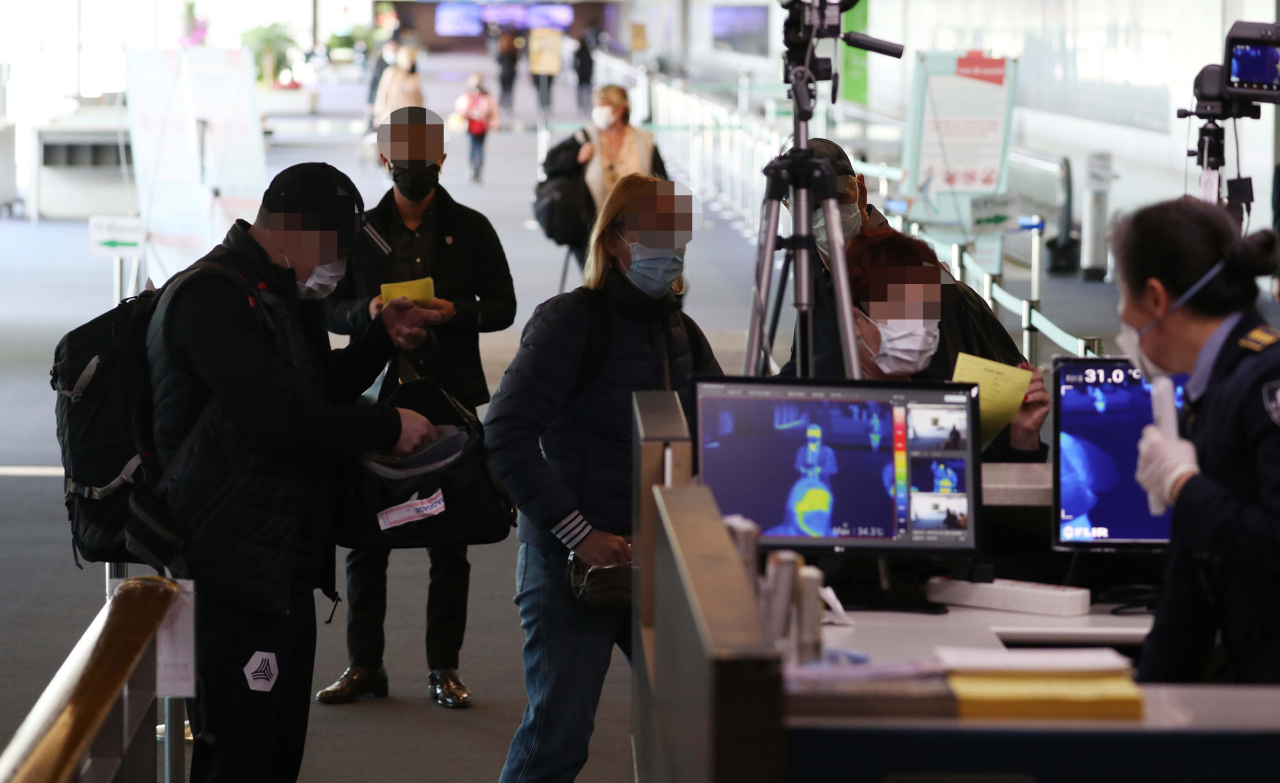
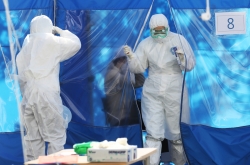
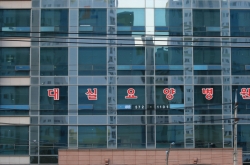
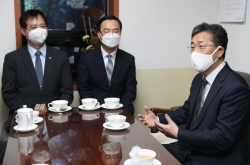
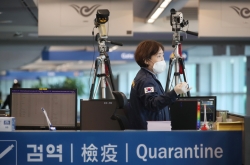






![[Today’s K-pop] Blackpink’s Jennie, Lisa invited to Coachella as solo acts](http://res.heraldm.com/phpwas/restmb_idxmake.php?idx=644&simg=/content/image/2024/11/21/20241121050099_0.jpg)
